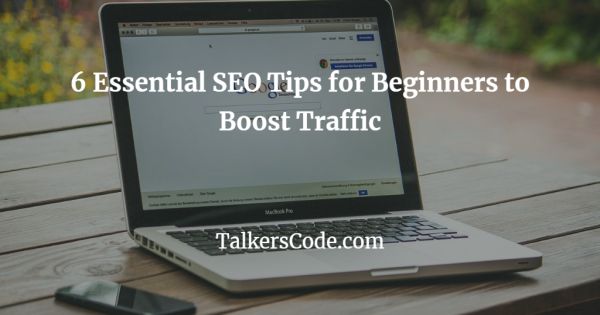SEO stands for "search engine optimization," and it's the process of making your website and online presence appear higher on search results when people type in keywords.
It involves building and maintaining a high-quality website and executing strategies to improve your organic search ranking. This can result in higher traffic, conversion rates, and more sales. Your website will appear more prominently in search results thanks to SEO.
One of the most effective ways to increase traffic to your website and grow your business is through SEO.
With so many improvements happening in search engines, optimizing your website traffic has never been more critical, especially if you're trying to get more organic traffic without spending a fortune on advertising.
But what does that exactly mean? Just because you have an online store doesn't mean you will automatically rank for the keywords you want to rank for.
Guide to SEO
Regardless of the size or type of event you are planning, an online registration system can be a valuable tool. By using an online system, you can:
Save Time and Money
Many people consider SEO to be the ultimate beginner's game, and that's because it's so accessible.
The first step to getting started in SEO is to familiarize yourself with the required terminology and processes.
You first want to conduct a Google search for your name and the term "SEO" and read the first few pages of results. This will give you an idea of what's out there and what people say about it.
Crawling, Indexing And Ranking
Search engines like Google crawl the web to find websites relevant to a user's query.
They use a process called "crawling" to retrieve the website's content and other information from the web.
The search engine searches the internet once a user submits a search query to locate the websites that are pertinent to the inquiry. It then uses the retrieved information to generate the search results.
When a website or digital asset is discovered, the search engine will "index" the content by saving a copy in a database.
This process allows users to find the content on the internet and then helps the search engine to rank websites higher in the search results.
Keyword Research
Keywords are the lifeblood of any SEO strategy. Keyword research is the first step in finding the right keywords to target your audience with, and it's also an essential part of optimizing your website for search engines.
If you're new to keyword research, here are a few tips to get you started:
- Start with a list of your competitors' keywords. Find out which ones they rank for on Google, and then use those as your starting point when identifying what you should target.
- Look at how many times each keyword gets searched for each month. If it's common but doesn't have enough volume to show up in searches for high-value keywords (i.e., "hotel" or "restaurant"), then that could be an opportunity for you!
- Use some free tools like SEMRush or Moz's Keyword Explorer tool to find related keywords that are relevant to what you want to rank for.
Ensure you're optimizing the keywords people enter in search engines (instead of just the ones they type into the address bar).
Optimization: On-site
Optimize Your Content with LSI Keywords - LSI stands for "Latent Semantic Indexing."
It's widely used as an effective SEO strategy because it provides Google with additional context about your content, helping Google with its own "understanding" of what your content is about.
Link Building: Establishing Authority
Use Internal Links - When Google searches for the best pages on a specific topic, it's never going to choose a page that doesn't have any internal links.
This is because Google needs to see that other sites consider your page valuable and link-worthy.
You can learn more from Forrest Webber, an expert in helping you with how to build an SEO strategy for beginners to boost traffic.
Create interesting and Clickable Meta Descriptions That Include Keywords
If you're not sure what a meta description is, it's the small snippet of text that appears below your page's title and above your page's URL.
Meta descriptions are supposed to entice users to click on your page and take action—and now that we've got technology like Google Analytics in place, we can see exactly how well these descriptions are working!
So what should you include in your meta description? That depends on who you're targeting with this content.
If you're trying to convert new customers or get more clicks on an old product campaign, focus on keywords that will help you rank higher in search results.
But suppose you want to increase traffic from existing customers or get more calls from people who already know about your business (and don't need any convincing).
Perhaps focusing on benefits rather than keywords would be a wise option.
Mobile friendly
Starting your SEO strategy means understanding what's working and not. One of the most important SEO hints for newbies is to make your site mobile-friendly.
You will benefit from increased visitors and better search engine results.
You can check your site's mobile-friendliness by using a tool like Google's Mobile-Friendly Test Tool or the Mobile-Friendly Test Tool from the All In One SEO Pack.
If you want to increase your rating on mobile search engines, you need to have a responsive website.
This means that the site will look good when viewed on any device—like a smartphone or tablet—even if the screen size is different.
Conclusion :-
With so much information out there targeting beginners to SEO, we've come up with some of the best.
Hopefully, the six tips we've shared here will help you get on your way towards improving SEO for your website and getting those coveted clicks.
Recommended Articles
Tags - Increase Website Traffic | Published On - 9 Apr 2023
Tags - Increase Website Traffic | Published On - 9 Apr 2023
Tags - Increase Website Traffic | Published On - 9 Apr 2023
Tags - Make Money Online | Published On - 9 Apr 2023




